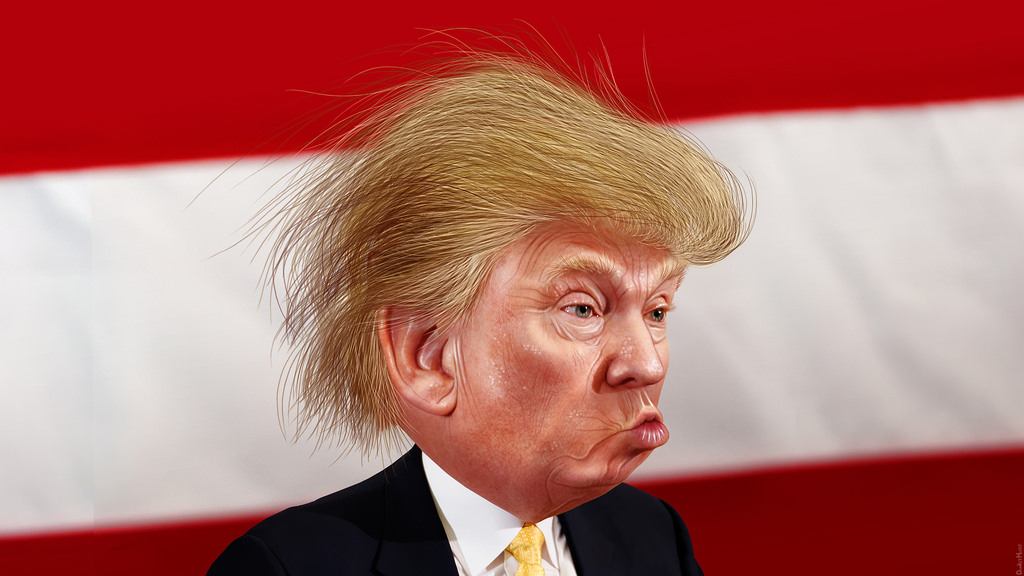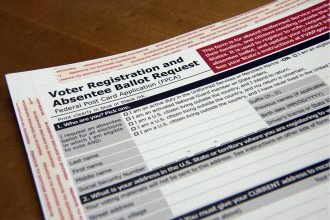Although the idea of the American Dream has long been disputed, especially in historical and political discourse, Donald Trump is re-branding it under the catchy slogan “Make America Great Again.” Contemporary literature argues that he’s really only referring to White America, and his views and policy suggestions lead to the conclusion that this is true. However, white Americans voting for Trump are largely from poor, uneducated rural areas. The enthusiasm for Trump among educated, middle and upper class Republicans is scant. Poor, rural-dwelling, white Americans are nostalgic for the days of industrialization and manufacturing, when a white middle-class was the basis of American society, and a relatively high standard of living was achievable simply through hard work. Trump is vague, it remains to be seen how he plans to ‘restore’ these communities to their privileged positions in a modern, globalized economy. Nevertheless, his charisma (if you can call it that) has proved enough to inspire a once prosperous population that is now trapped in a cycle of poverty and despair.
This erosion of economic success, employment, and spirit in rural white America was caused by a multitude of factors, which together have led to compounding consequences. These problems include globalization, decreases in job quality and availability, and the fragmentation of communities and the collective identities that come along with them. This has resulted in unemployment and social isolation, especially since many rural, white, working-class Americans make the majority of their social connections at work. The social fabric that was woven together by the socialization that occurred at work and the collective communities that formed as a result has unraveled. Consequently, there are now astonishingly high rates of depression, suicide, opiate addiction, and alcoholism among this population.
This disintegration of communities and social organizations in rural, white, working class America has created a chasm between these populations and the well-educated, wealthier section of the white Republican electorate. Since the GOP has been controlled by a wealthy few in recent history, the majority of Republicans, many of whom are white, rural, poor, or working class, are not benefiting from contemporary conservative politics. This is exacerbated by the fact that many members of the upper tier of Republicans and Americans see poor, rural, white Americans as a lower class, and take little interest in associating or interacting with them. In turn, members of the latter often see the former as pompous, corrupt, unauthentic, or greedy. This split has become blatantly apparent in the current election, and emotions are running high, especially among Republicans of lower socio-economic status. Trump, in characteristic fashion, has manipulated these grievances through deceitfully passionate emotional appeals to the sentiments of white, rural, poor, or working class Americans.
For example, much of the classism on Capitol Hill, as well as the economic and social policies that have exacerbated the decline of rural, white America, often come from wealthy, white Republicans. However, Trump frames it in the context of a sort of derivation of ‘reverse-racism.’ He blames their situation on things like increasing diversity in America, the hyper-education and liberalization of the left, illegal immigration, Muslim immigrants, etc. He claims that illegal immigrants are taking their jobs, Muslim immigrants are endangering their families and freedom, and a diverse population is eroding the white majority, therefore making white people and progress obsolete. These arguments are fallacious, to say the least, but the viewpoint of the electorate in question must be observed.
These communities have not only lost their economic prosperity, they have lost their culture. They see progressive, liberal ideologies becoming embedded in society, spurning a strong reactionary backlash from a traditional or conservative segment of the electorate, which yearns for simpler times. They want to revive the great successes enjoyed by the predominantly white middle class in 20th century rural America, their iteration of ‘The American Dream.’ They could care less what constitutes a micro-aggression, or what is and isn’t politically correct. Although these people enjoy white privilege, this pales in comparison to the oppression they experience due to being uneducated, poor, and often unemployed. To an impoverished white man living in rural West Virginia who is depressed and struggles with alcoholism, the idea of white male privilege doesn’t make sense. More broadly, establishment politics altogether might not make sense, because the experience of white, rural, poor Americans is rarely addressed or legislated upon in this context. As a result, people in this group feel as though they have no formal political channel through which to initiate changes. In their eyes, they have virtually no autonomy when it comes to a detached government (especially the federal government) in America. This type of anger and frustration does not sit well, especially when there is no political channel through which it can be funneled.
Enter Donald Trump. Not only does he offer an all-encompassing, pseudo-panacea political platform through which these people can express their frustrations, he legitimizes scapegoating, or “othering,” of non-white, ethnic, and religious minority populations in America. According to McGill Sociologist Matthew Lange, populations that experience economic oppression and classism and have no formal political autonomy or do not trust their government often choose scapegoats in the form of ethnic, racial, or religious groups different from themselves. Taking this into account, it becomes apparent that Trump’s two-pronged approach, promising a political voice for this group while also reinforcing and bolstering pre-existing prejudices and suspicions, is hitting a vein. They don’t trust him because he’s credible; they trust him because they believe he is like-minded.
The irony is, men like Trump, the business practices they employ, and the legislation they influence, make much larger contributions to the plight of rural, working-class white America than any of the scapegoats Trump and his supporters so vehemently denounce. Trump evades federal taxes. He uses grants meant to help those in need of low-income housing to build premier luxury apartment buildings. And when he is not allowed to exploit loopholes, he sues state legislatures, wasting more taxpayer money. Many of his supporters in rural, white working-class America claim they wish to raise taxes on the rich, but are blatantly unaware that his tax plan, although taxing high earners at a relatively high rate, would also increase taxes for the lowest bracket, and bolster the power of corporations by eliminating corporate tax. Donald Trump’s support is garnered from emotional and ideological appeal, not concrete policy or political credibility. Just as the government has forgotten to govern and engage them, rural, white, poor or working class America has lost sight of what to look for in those who govern.


